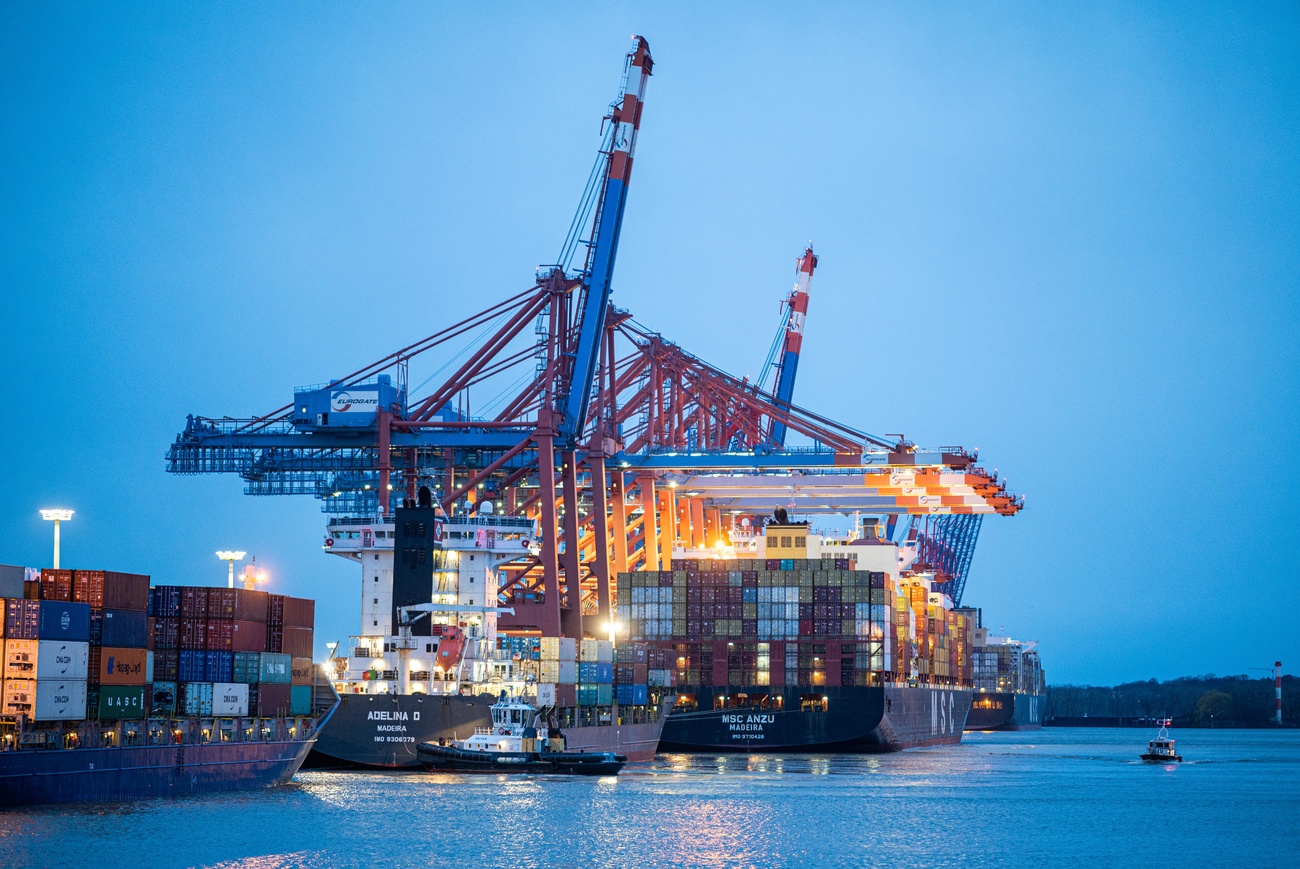
Swiss industry group worried about global supply chain issues

Despite high demand, the machinery, electrical engineering and metal (MEM) sector is still hampered by disruption to global supply chains, says a top sector representative.
Martin Hirzel, the president of the Swissmem industry association, told SRF public radio on Saturday that an imminent improvement on global markets was “not even wishful thinking anymore”.
The disruption caused by the pandemic, then the war in Ukraine, has thrown supply chains “completely out of step”, Hirzel said. The 1,300 businesses in his association have plenty of orders pending, and demand is high, but they often just can’t make deliveries.
The current lockdown in Shanghai will cause more problems, he added: due to strict Covid measures in place, exports going through the Chinese city over the coming weeks will be impacted, which will again disrupt global flows.
China has grown in importance as a destination for Swiss industrial exports since a free trade deal between the two countries in 2014. China now accounts for 7% of all Swiss MEM exports, and was a key market in helping the industry bounce back after the first wave of the pandemic.
The sector suffered in 2020 – like the entire Swiss economy – but recovered strongly last year, when orders increased by 26.5% and exports by 12.7%, Swissmem wroteExternal link in February this year.
Total turnover last year in the sector – which employs some 320,000 people – was still however below its 2018 peak.
No deglobalisation
Despite the difficulties, Hirzel said he doesn’t think the world is entering a period of deglobalisation. Although Swiss deals with geographically closer suppliers are seeing a “renaissance” due to the current situation, China will remain important.
The Swissmem president did however say he was worried about a growing politicisation of trade, and global divisions into different blocs with competing regulations and technological standards.
If these blocs, and the supply chains that serve them, no longer overlap as they do now, this will be bad news for Swiss exporters, Hirzel said. “But [he] hopes it won’t come to that.”

In compliance with the JTI standards
More: SWI swissinfo.ch certified by the Journalism Trust Initiative






























You can find an overview of ongoing debates with our journalists here . Please join us!
If you want to start a conversation about a topic raised in this article or want to report factual errors, email us at english@swissinfo.ch.